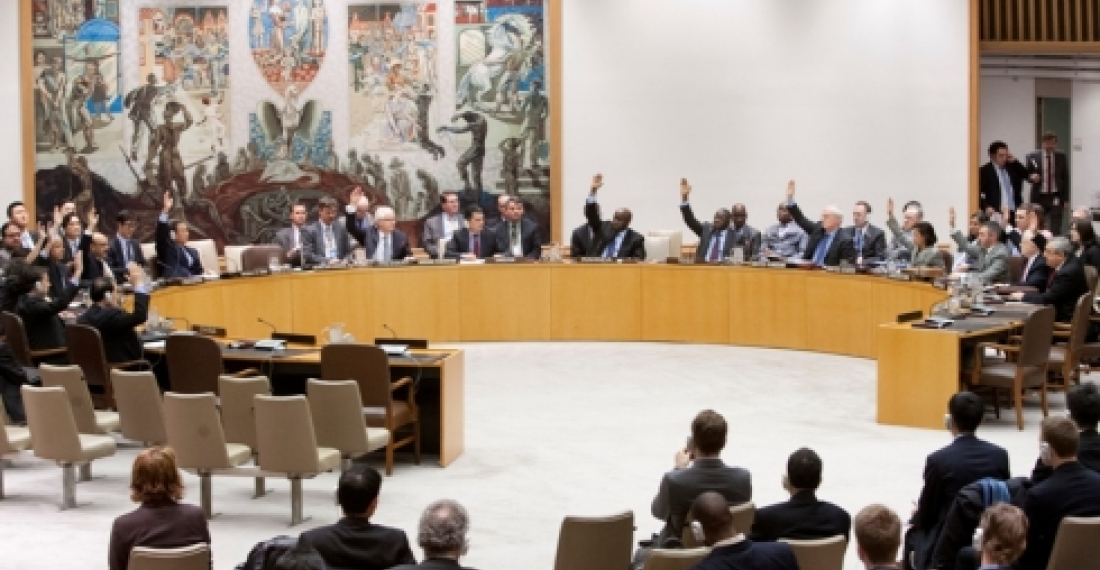On 1 October Azerbaijan assumed the Chairmanship of the United Nations Security Council for the second time during its two-year stint as one of the non permanent members of the world body. The Chairmanship of the Security Council is held by rotation for one month by the fifteen permanent and non-permanent members. Azerbaijan already held the Chairmanship of the Council in March 2012.
Azerbaijan's election to the Security Council for the two year-period 2012-13 resulted after a tight vote in the UN General Assembly in 2011. It marks a high point in Azerbaijani foreign policy. October is likely to be a busy month for the Security Council with focus remaining on Syria. As Chairman of the Council Azerbaijani will have to work closely with the five permanent members in order to build consensus, since all five have veto power. A lot of the Council's work is done behind the scenes, and Council meetings are usually held in times of crisis, or after a large degree of agreement has been secured in prior consultations.
Commonspace.eu political editor commented on the significance of Azerbaijan's Chairmanship of the world body:
"There are few roles that are more prestigious in international diplomacy than the Chairmanship of the UN Security Council, and Azerbaijan, a relatively small country with a short experience of global politics is rightly proud to take over this duty this month. Azerbaijan's election to the world body in 2011 was thanks largely to the efforts exerted by Azerbaijani diplomats led by the hard-working and skillful Foreign Minister, Elmar Mammadyarov. Mammadyarov was appointed Foreign Minister shortly after Ilham Aliev became President in 2003. He was a relatively unknown mid ranking diplomat serving in the United States at the time. The Aliev-Mammadyarov team have over the last decade criss-crossed the world building new relationships and friendships. Azerbaijan became an active member of the OIC - the organisation of Islamic states, and the Non Aligned Movement (NAM). It was OIC and NAM support that secured the votes for Azerbaijan's seat on the world body.
Azerbaijan is today an important energy exporting country, and this has given it the flexibility to develop an independent foreign policy that, by and large, balances interests rather than engages in alliances. Azerbaijan for example has rejected membership of both the Russian based Customs Union and Eurasian Union, and association with the EU. Its foreign policy balances between good relations with Israel and good relations with the Arab States. It considers relations with both Russia and the United States as strategic. In contrast Azerbaijan's South Caucasus neighbours have opted for firm alliances: Georgia within the European and Euro-atlantic community; Armenia within the Eurasian Union and the CSTO.
Azerbaijan's stint on the UN Security Council has been largely uneventful, and marked by a responsible attitude. Azerbaijani efforts to highlight issues related to the Nagorno-Karabakh conflict have been measured. This is how it should be, and one hopes this will be the case until the end of the Azerbaijani term on the Council in December. Azerbaijan will by the end of this year have gained a lot of diplomatic experience. This and the goodwill of the international community will be the legacy of its efforts. For the next month however Azerbaijani diplomacy will need to work hard and wisely in New York and world capitals at head of the institution that is the repository of world peace and security."
Source: Commonspace.eu
photo: The UN Security Council in Session.







